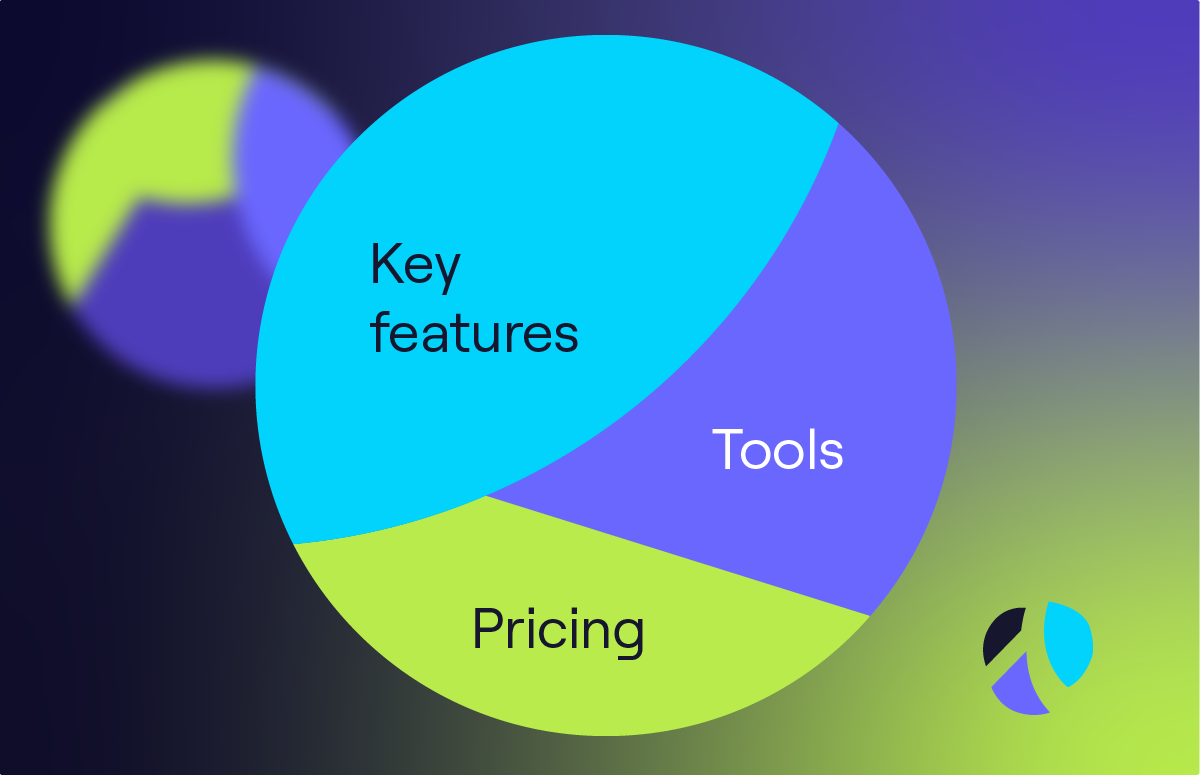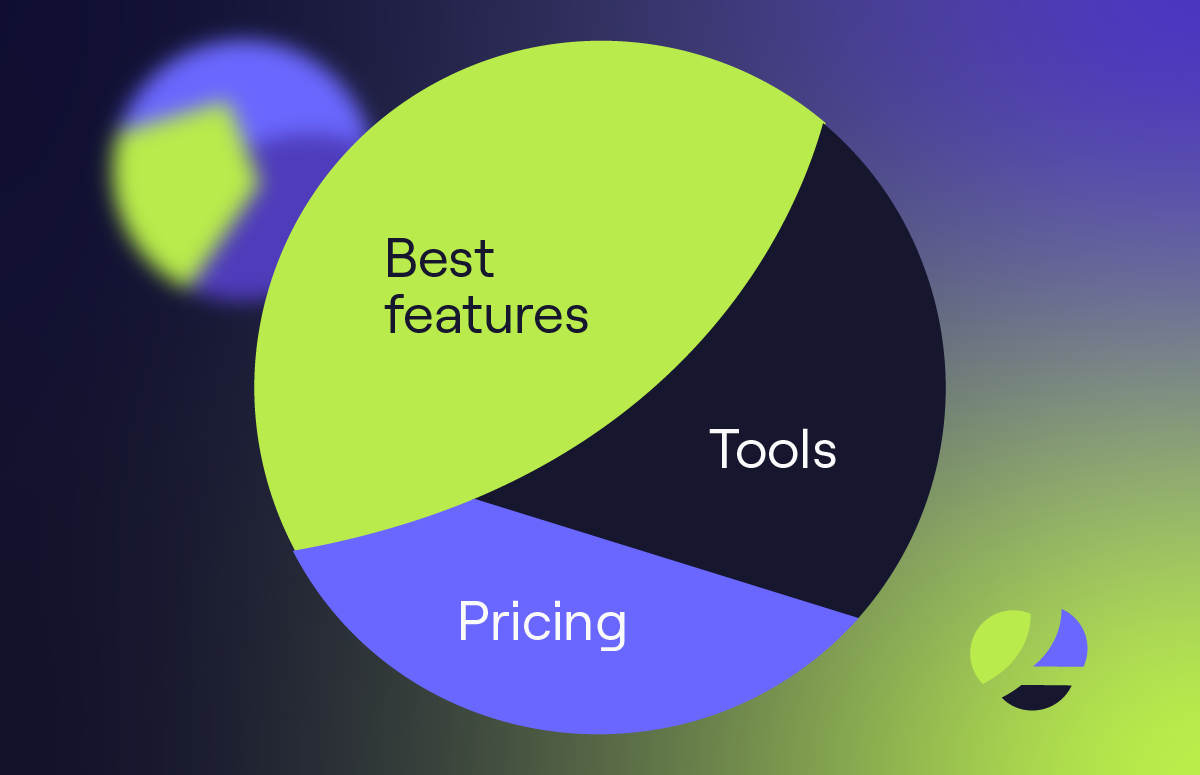All You Need to Know to Succeed as an SDR in France
Breaking into a new market? Need your SDRs (or you, if you are an SDR!) up to speed about how to prospect into France, quickly? We’ve got you.
In this blog, we’ll share our tips and tricks for reaching French prospects and what to say once you do.
First, let’s get to know the French market.
Understanding the French market and business culture
There are a few things you should know before you start making cold calls in France.
The first is that it’s generally accepted that the French market is a good few steps behind the UK and US when it comes to maturity, tech adoption, and processes.
For example, Elsa Alami, Cognism SDR in France, said:
"A lot of companies in France still use homemade CRMs or even Excel. Many don’t have dialers or even modern sales tools."
Which means in certain cases, businesses and industries - you might have a hard sell when it comes to new innovative ideas that don’t integrate with their old systems or that they’re not ready to implement.
That is not to say this is the same across the board. There are a lot of new businesses in France, as France has been making efforts to foster a “startup nation” culture. As new businesses, they’re less likely to be stuck in old processes.
The second is that alongside this slower progression, purse strings and budgets are held a little tighter too. Elsa explains:
“French buyers are very close to their money. They don’t have this ROI mindset where they’re willing to invest a lot to get a lot back. They prefer small investments with big returns.”
This might mean that big, expensive tools will need to do their due diligence when it comes to showing the value of their product, demonstrating possible ROI where relevant, and trying to mitigate any associated risks.
This does offer significant opportunities when positioning cost-effective tools and tech in France. Therefore, you should demonstrate how your solution can deliver quick, tangible results without requiring a significant upfront investment where possible.
The perception of cold calling in France
To understand the B2B world of cold calling in France, it helps to understand some context from a wider lens. The country has a long history of aggressive B2C telemarketing, which has jaded people over the years.
Lots of older French people associate cold calls with sales pitches from telecom, electricity, and other service providers, which has led to a general annoyance with unsolicited calls.
Elsa said:
“In France, cold calling has a bad reputation because of all those B2C companies—people are used to saying ‘no’ immediately.”
“Younger buyers, especially in tech, are way more understanding of being prospected. The older generation? They still see cold calls as annoying interruptions.”
While cold calling may not have the best rap due to the country’s previous experiences, B2B cold calling is not as developed in France as it is in markets like the US and UK.
Because of this, French prospects are not as oversaturated with work-related sales calls, making cold calling a more viable strategy than in other regions.
Elsa added:
“It’s actually easier to reach people here than in the US or the UK.”
This means that in France, sales reps can rely a little more on volume versus extreme personalisation to get responses, which contrasts with the UK and US where highly personalised emails and outreach are necessary.
However, this doesn’t mean you should skip research entirely. Understanding the prospect’s industry and challenges is still crucial, but you don’t need to spend hours crafting the perfect personalised email.
Cold call best practices in France
When it comes to cold calling best practices, there are a few differences in France in comparison to other markets.
Elsa said:
“In the U.S., you might start with ‘Hey, how are you?’ and have some chit-chat. In France, that doesn’t work. You need to be direct: ‘This is why I’m calling, and this is why it matters to you.’”
“I often use ‘Am I bothering you?’ as an opener. This works super well as they usually respond, ‘No, no, no, I’m not that busy.’ And then I continue the conversation.”
Additionally, the formality of language in France is important. Cold calls are expected to be delivered in formal language and addressed to the prospect with professionalism.
Elsa added:
“If it’s somebody you’ve never talked to, never met, you would kinda keep that distance with the formality of the language. This is also why small talk isn’t really that great because you already have a kind of a distance with the prospect.”
It’s important to mention at this point that cold calls in France would be expected to be in French. While English may be widely spoken in Paris, prospects in other regions may not be as comfortable with it. Speaking French is essential for building trust and rapport.
When it comes to handling objections, French prospects appreciate a human and empathetic approach.
Common objections, such as being too busy or lacking a budget, can often be overcome by showing understanding and offering flexibility.
Elsa said:
“Near the end of the year, for example, I often hear they’re overwhelmed and busy. And I think in that case, the reaction is to be, like, very human about it... I’m just gonna say, ‘You know what? I get it. Let’s just put something in for January. That way, it’s gonna be better for you."
This approach not only helps build rapport but also keeps the door open for future conversations. French prospects are more likely to engage if they feel you’re not being pushy or overly aggressive.
Using LinkedIn and Email in France
LinkedIn and email are also popular channels for B2B prospecting in France - but Elsa prefers to use cold calling as the primary channel, supplemented by LinkedIn and email.
She explained:
“For me, you have to be really worth it for me to make you an email because it takes longer than calling someone.”
“Sometimes, if I’m struggling to reach someone, then I use email to help introduce myself so they know who I am when I call. They know what the conversation is gonna be about. It’s just kinda so that they’re prepared.”
LinkedIn however, is more effective than email for tough-to-reach prospects, especially during slow months.
Elsa explains:
“I would say LinkedIn is actually better than emails... It’s a really good channel for summers and difficult months where you can’t really reach people via phone.”
Cold call objections in France
There’s an interesting cultural nuance about how French prospects handle the end of a cold call. In the UK or US, it’s quite common for prospects to hang up the phone mid-cold call if they decide they’re not interested in listening anymore.
However, this is less common practice in France. French prospects often wait for approval to hang up.
Elsa said:
“They wouldn’t necessarily abruptly hang up, just like that. They would tell you goodbye and then wait for you to say goodbye, and then they would hang up.”
This reflects a level of politeness and formality that is characteristic of French communication styles. So what does this mean for SDRs?
Well, it means you might have a little more time to play with when it comes to avoiding an abrupt end to a conversation, which may offer opportunities to turn the call around in your favour.
However, it also means you should always try to end calls gracefully. It’s important to mirror this level of politeness and end calls on a positive note, even if the prospect isn’t interested.
A simple “Thank you for your time, have a great day” can go a long way in leaving a good impression.
Now, here are some common objections you may face from French prospects, and how to handle them.
“I’m too busy”
This is one of the most common objections in any region, but how you handle it in France might differ from other regions. SDRs are expected to be understanding and empathetic about their prospects feeling too busy for the call.
In cases like this, you should acknowledge their busyness, saying something like ‘I hear you, I can only imagine how distracted you must be when you have so much going on’.
And then offer to reschedule to a date that better suits them, saying something along the lines of ‘how about we book in some time in, say, a week’s time when you have a little less on your plate, and we can talk properly?’
This approach keeps the door open for future conversations without being pushy.
“I’m not interested”
When prospects say they’re not interested, don’t take it personally. It may be that they don’t fully understand the problem that you solve - or simply that they’re not in the headspace to listen that day.
Instead, you can use this as an opportunity to follow up later.
Elsa said:
“In that case, I try not to push too hard at the moment; I might ask them to explain further, but I want to respect their time. So I use the objection as a reason to follow up later, and reference the previous conversation.”
This approach builds a sense of continuity and keeps the prospect engaged over time.
“What’s the price?”
Many SDRs won’t have access to specific pricing, as it depends on several factors. So, it might feel like you’ve reached a dead end at this point of the conversation, as you can’t answer.
But Elsa sees this as a huge opportunity. She said:
“This is a positive sign of interest. Instead of giving a number, I use it as an opportunity to book a meeting with an Account Executive.”
"I’ll say something like ‘pricing is a bit above what I do. I think you would get way more value talking to one of my AEs’, and then we can just arrange that.”
Position the meeting as a way to get more detailed answers and value.
Regulatory challenges in France
France, as part of Europe, is subject to GDPR laws, which protect personal information. This has implications for cold callers in France. However, if handled correctly, it doesn’t pose a major obstacle.
Having strong documentation and being well-prepared to address GDPR queries can help mitigate any concerns.
Recently however, there has been talk of introducing further restrictions in France, which was voted on in the French assembly.
The specifics of the bill are still unclear as it has not yet been fully passed into law.
Elsa explained:
“Just yesterday, I think there was a bill that was voted on that was aimed to restrict cold calls... It’s unclear what it means for now because it’s not finalised yet. It has to go to the senate.”
Elsa speculates that the bill is likely more focused on B2C cold calling rather than B2B, but it’s something to keep an eye on as it develops if you have plans to move into the French region.
The last word
Succeeding as an SDR in France means adapting to the country’s unique business culture. Cold calling remains effective but requires a formal, direct approach—small talk won’t work, and ROI must be clear, as French buyers are cautious with budgets.
While LinkedIn and email can support outreach, calling in French is essential for building trust. Handling objections with empathy and professionalism will also help keep conversations open.
With the right strategy, SDRs can navigate the French market, connect with prospects, and drive pipeline growth.



